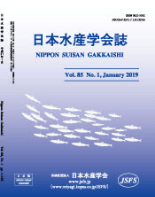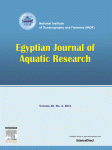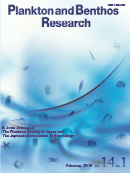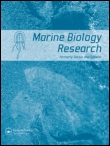
Marine Life Science & Technology
Scope & Guideline
Advancing marine research for a sustainable future.
Introduction
Aims and Scopes
- Marine Biology and Ecology:
Research related to the biological diversity, ecological interactions, and evolutionary processes of marine organisms, including studies on specific taxa like fish, crustaceans, and microorganisms. - Aquaculture and Fisheries Management:
Focuses on sustainable practices in aquaculture, including breeding, health management, and the development of technologies for improving fish farming efficiency and sustainability. - Genomics and Molecular Biology:
Utilizes genomic tools and molecular techniques to investigate the genetic makeup of marine organisms, their adaptations, and responses to environmental changes. - Microbial Ecology and Biotechnology:
Explores the roles of microbes in marine ecosystems, their interactions with higher trophic levels, and their potential applications in biotechnological processes. - Environmental Monitoring and Climate Change:
Studies the impacts of climate change and human activities on marine ecosystems, contributing to conservation efforts and policy development. - Natural Products and Bioactivity:
Investigates marine-derived compounds for their potential pharmaceutical applications, including antibacterial, antiviral, and anticancer properties.
Trending and Emerging
- Integrative Approaches in Marine Research:
There is a growing trend towards integrative studies that combine molecular biology, ecology, and environmental science to address complex questions regarding marine life and ecosystems. - Applications of Artificial Intelligence and Machine Learning:
The use of AI and machine learning techniques in marine research, particularly for data analysis and predictive modeling of marine species distributions and fishing grounds, is gaining momentum. - Health and Disease Management in Aquaculture:
Increased attention is being paid to understanding the health and disease dynamics of farmed aquatic organisms, including the role of microbiomes and genetic factors in disease resistance. - Climate Change Adaptation Strategies:
Research focusing on the adaptation of marine species to climate change, including physiological and behavioral responses, is increasingly prevalent, reflecting urgent global concerns. - Biotechnological Innovations and Natural Products:
A notable increase in studies exploring marine natural products for their biotechnological applications, particularly in medicine and environmental remediation, highlights the potential of marine biodiversity.
Declining or Waning
- Traditional Taxonomy and Systematics:
Although taxonomy remains important, there has been a noticeable decline in publications centered solely on traditional taxonomic studies without modern molecular techniques. This shift towards molecular phylogenetics and genomics reflects a broader trend in the scientific community. - Generalized Marine Conservation Strategies:
Papers focusing on broad, non-specific conservation strategies are less frequent. There is a growing emphasis on targeted studies that address specific issues or species, reflecting a trend towards more actionable and data-driven conservation efforts. - Static Environmental Assessments:
Research that evaluates marine environments without considering dynamic factors such as climate change impacts or anthropogenic influences has decreased. There is now a preference for studies that incorporate temporal changes and predictive modeling.
Similar Journals

NIPPON SUISAN GAKKAISHI
Exploring the Depths of Fisheries ScienceNIPPON SUISAN GAKKAISHI, published by the Japanese Society of Fisheries Science, is a prestigious journal with a long history dating back to its inaugural issue in 1932. This journal, which spans key contributions to the field of Aquatic Science, serves as a vital platform for the dissemination of important research findings related to fisheries and aquatic biology, fostering knowledge and innovation in Japan and beyond. Although it is not an open-access publication, its rigorous peer-review process ensures the quality and integrity of the articles published. The journal is currently listed in the Q4 category for Aquatic Science according to the 2023 metrics, placing it within a niche but significant corner of the research landscape. With an ISSN of 0021-5392 and E-ISSN of 1349-998X, it continues to provide essential insights that benefit researchers, professionals, and students alike, highlighting advancements and challenges within aquatic ecosystems over a converged year span that continues to evolve through to 2024.

FISHERIES SCIENCE
Navigating the future of aquatic resource management.Fisheries Science, published by Springer Japan KK, is a renowned journal in the field of aquatic science, effectively bridging the gap between scientific research and practical application in fisheries management. With an ISSN of 0919-9268 and an E-ISSN of 1444-2906, this journal serves as a vital resource for researchers, professionals, and students interested in advancing their knowledge and understanding of aquatic ecosystems and fishery practices. Operating within a competitive landscape, Fisheries Science has achieved a respectable ranking in Scopus, placing 96th out of 247 journals in the Agricultural and Biological Sciences > Aquatic Science category, showcasing its integral role in contributing to this dynamic field. The journal encompasses a wide range of topics from sustainable development to conservation strategies, aiming to foster collaborative research and innovative solutions to the challenges facing fisheries today. While not an open-access journal, Fisheries Science remains a key publication for those dedicated to marine science and the sustainable management of aquatic resources, with a historical footprint extending from 1994 to 2024.

Latin American Journal of Aquatic Research
Unveiling the Wonders of Oceanography and Aquatic ScienceLatin American Journal of Aquatic Research (ISSN: 0718-560X) is a distinguished scholarly publication that has been paving the way for aquatic science research since its transition to Open Access in 2008, allowing unhindered access to diverse scientific inquiries conducted in Latin America and beyond. Published by Pontificia Universidad Catolica de Valparaiso in Chile, this journal serves as a vital platform for researchers and practitioners in the fields of Aquatic Science and Oceanography. With an esteemed Q3 ranking in both categories as of 2023, it is dedicated to disseminating high-quality research findings that address pressing ecological and biological challenges. The journal’s reach and impact are reflected in its Scopus rankings, where it stands at the 36th percentile in Oceanography and the 35th percentile in Aquatic Science. Researchers, professionals, and students alike will find valuable insights and data-driven articles that further the understanding of aquatic ecosystems, making it an essential resource for ongoing studies and future innovations.

THALASSAS
Fostering Innovation in Marine ResearchTHALASSAS is a prominent academic journal specializing in the fields of Aquatic Science and Oceanography, published by Springer International Publishing AG. Established in 2005 and running through 2024, this journal serves as a vital platform for sharing groundbreaking research and innovative findings related to the marine environment and its ecosystems. With an ISSN of 0212-5919 and an E-ISSN of 2366-1674, THALASSAS is indexed in Scopus and currently holds a Q3 classification in both Aquatic Science and Oceanography for 2023, reflecting its relevance and contribution to these scientific disciplines. Although it does not follow an Open Access model, THALASSAS offers valuable insights for researchers, professionals, and students interested in sustainable ocean management and aquatic biodiversity. Its rigorous peer-review process ensures that published articles meet the highest standards of academic quality, fostering a deeper understanding of marine sciences and addressing critical issues facing aquatic systems today.

Egyptian Journal of Aquatic Research
Exploring the depths of aquatic ecology and evolution.Welcome to the Egyptian Journal of Aquatic Research, a premier peer-reviewed academic journal published by ELSEVIER, dedicated to advancing the field of aquatic sciences. With a robust impact factor and recognition as a Q1 journal in key categories such as Aquatic Science and Ecology, this open access journal has established itself as a vital platform for disseminating high-quality research since its inception in 2012. The journal aims to provide comprehensive coverage of topics including ecology, evolutionary biology, and water science, making it a crucial resource for researchers, professionals, and students engaged in these dynamic fields. With Scopus rankings placing it in the top echelons of various categories, the Egyptian Journal of Aquatic Research fosters innovation, collaboration, and knowledge dissemination on a global scale, making it an indispensable asset for anyone invested in understanding and preserving aquatic systems.

Plankton & Benthos Research
Pioneering Discoveries in Plankton and Benthic ResearchPlankton & Benthos Research, published by the Plankton Society of Japan, serves as a pivotal platform in the fields of Aquatic Science, Ecology, and Oceanography. With its inception in 2006 and ongoing publication until 2024, this esteemed journal focuses on the complex interactions within aquatic ecosystems, emphasizing the significance of plankton and benthic organisms in maintaining ecological balance. Although it is categorized in the Q3 quartile across several disciplines, it continues to provide valuable insights and a forum for researchers to share innovative findings and methodologies. The journal is not currently open access, which ensures a layer of curator-driven content quality. Its impact, measured through Scopus rankings, showcases its role in fostering knowledge exchange among academics and professionals engaged in ecological and environmental studies. With an ISSN of 1880-8247 and E-ISSN 1882-627X, Plankton & Benthos Research invites contributions that enhance our understanding of the aquatic realm, establishing itself as a crucial resource for ongoing research and advancement in these essential fields.

Aquatic Biology
Fostering Collaboration in Aquatic ResearchAquatic Biology, published by INTER-RESEARCH, is a leading open-access journal dedicated to the scientific exploration of aquatic ecosystems, promoting innovative research in the fields of aquatic science, ecology, and oceanography since its inception in 2007. With an E-ISSN of 1864-7782, the journal publishes original articles, reviews, and data papers that contribute to the understanding of aquatic biology in its myriad forms. As of 2023, it holds a respectable Q3 ranking across multiple categories including Aquatic Science and Ecology, reflecting its sustained impact within the scientific community. Situated in Germany, Aquatic Biology operates a policy of open access since 2014, ensuring that valuable research findings are readily available to researchers, professionals, and students worldwide, thus fostering collaboration and knowledge dissemination. By addressing diverse aquatic topics, the journal plays a crucial role in advancing the study and conservation of marine and freshwater environments, making it an essential resource for anyone seeking to deepen their understanding of aquatic systems.

MARINE BIOTECHNOLOGY
Transforming Marine Discoveries into Biotechnological SolutionsMarine Biotechnology is a premier journal published by Springer, specializing in the interdisciplinary research at the intersection of marine biology and biotechnology. With an ISSN of 1436-2228 and a robust e-ISSN of 1436-2236, this journal has been a cornerstone for scholars and practitioners since its inception in 1999, and is positioned to continue shaping the field through 2024. Recognized for its contributions in Aquatic Science and Biotechnology, it currently holds a Q2 ranking in both categories for 2023, highlighting its relevance and impact within the global scientific community. With a Scopus rank of 64/247 in Aquatic Science and 149/311 in Biotechnology, Marine Biotechnology offers a vital platform for disseminating cutting-edge research that encompasses environmental sustainability, pharmaceutical applications, and bioinformatics. The journal promotes open access to its valuable content, ensuring that research is readily available to a wide audience. By bringing together leading researchers and fostering collaborations, Marine Biotechnology stands as an essential resource for those committed to advancing our understanding of marine resources and their applications in biotechnology.

Marine Biology Research
Advancing marine science for a sustainable future.Marine Biology Research is a premier journal published by Taylor & Francis, focusing on the dynamic field of marine biology and its intersecting realms of aquatic science, ecology, and oceanography. Since its inception in 2005, this journal has served as a crucial platform for researchers and professionals to disseminate their findings, with a vision extending to 2024 and beyond. The journal is recognized with a Q3 quartile ranking in both Aquatic Science and Ecology, Evolution, Behavior and Systematics, underscoring its growing influence in these fields as evidenced by its Scopus rankings. Located in the United Kingdom, Marine Biology Research aims to foster collaboration and innovation through open access options, facilitating knowledge exchange among the academic community. With a steady commitment to advancing marine sciences, this journal is an invaluable resource for those dedicated to understanding and preserving our ocean ecosystems.

MARINE AND FRESHWATER RESEARCH
Unveiling the mysteries of our waters.Marine and Freshwater Research is a prestigious journal published by CSIRO PUBLISHING that serves as a key platform for the dissemination of cutting-edge research in the fields of Aquatic Science, Ecology, and Oceanography. With an impactful presence since its inception in 1948, the journal provides critical insights into the dynamics of freshwater and marine ecosystems, promoting interdisciplinary approaches that contribute to our understanding of biodiversity and sustainability. Currently ranked in the Q2 category across major scientific domains, including Ecology and Aquatic Science, it enjoys a robust academic reputation supported by impressive Scopus rankings, such as Rank #66/247 in Aquatic Science and Rank #44/145 in Oceanography, reflecting its high citation impact and relevance. While offering a subscription-based access model, the journal remains dedicated to fostering dialogue and innovation within the scientific community, aiming to bridge the gap between research findings and practical applications in environmental management. Located in Australia, Marine and Freshwater Research is an essential resource for researchers, professionals, and students dedicated to exploring the complexities of aquatic ecosystems and advocating for their preservation.